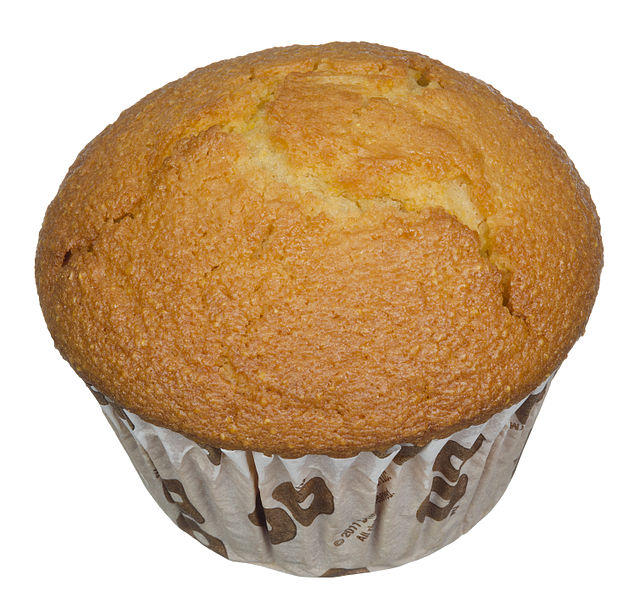Johnnycake, also known as journey cake, johnny bread, hoecake, shawnee cake or spider cornbread, is a cornmeal flatbread, a type of batter bread. An early American staple food, it is prepared on the Atlantic coast from Newfoundland to Jamaica. The food originates from the indigenous people of North America. It is still eaten in the Bahamas, Belize, Bermuda, Canada, Colombia, Curaçao, Dominican Republic, Jamaica, Puerto Rico, Saint Croix, Sint Marteen, Antigua, and the United States.
A Johnnycake in a cast iron fry pan
Kenyon Corn Meal Company, a gristmill in Usquepaug, Rhode Island. The building shown was built in 1886, and company history dates from the early 1700s or earlier.
Johnnycakes on a plate
Deep-fried johnnycakes filled with cheese, common in the Caribbean Netherlands
Cornmeal is a meal ground from dried corn (maize). It is a common staple food and is ground to coarse, medium, and fine consistencies, but it is not as fine as wheat flour can be. In Mexico, very finely ground cornmeal is referred to as corn flour. When fine cornmeal is made from maize that has been soaked in an alkaline solution, e.g., limewater, it is called masa harina, which is used for making arepas, tamales, and tortillas. Boiled cornmeal is called polenta in Italy and is also a traditional dish and bread substitute in Romania.
Cornmeal
Southern Africa's Nshima cornmeal (top right corner), served with three relishes.
Grindstones inside Mingus Mill, in the Great Smoky Mountains of North Carolina. Corn is placed in a hopper (top right) which slowly feeds it into the grindstone (center). The grindstone grinds the corn into cornmeal, and empties it into a bucket (lower left). The grindstones are turned by the mill's water-powered turbine.
A corn muffin








